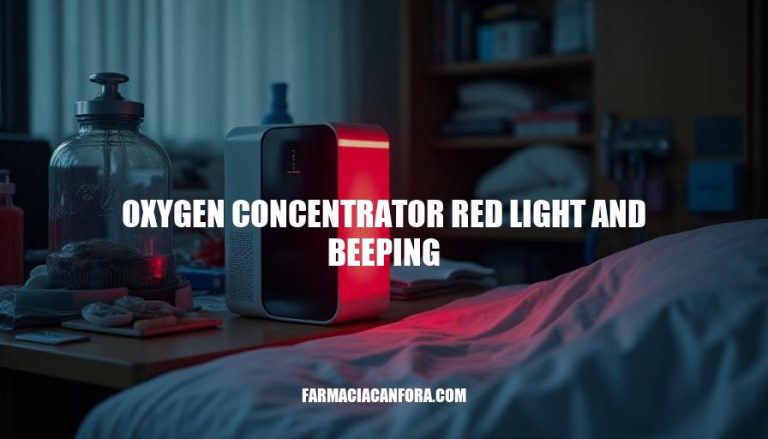


Oxygen concentrators are important for people who need extra oxygen because of a medical condition. To use them safely, you need to understand the lights and sounds they make. These signals tell you if something’s wrong or if the machine needs fixing.
If you don’t know what they mean, you might not get enough oxygen or the machine could break down, which is very bad for your health. So it’s really important to learn about these warnings and how to respond to them.
Power Issues
Loose Power Cord or Low Battery: Ensure the power cord is securely connected to both the concentrator and the outlet. For portable units, check the battery level and replace or recharge it as needed.
Beeping Without Flashing Light: This often signals that the device isn’t receiving adequate power. Ensure the power cord is securely connected to both the concentrator and the outlet.
Kinked Tubing: Check the tubing for any kinks or bends and straighten them out.
Blocked Filters: Clean or replace the air filter if it appears clogged.
Environmental Factors: Ensure the device is in a well-ventilated area away from obstructions that could impact airflow.
Overheating
Poor Ventilation: Place the concentrator in a cool, ventilated area.
Avoid direct sunlight or placing the unit near heat sources like radiators.
Continuous Overheating: If the concentrator continues to overheat, consider using it in shorter sessions and consulting a technician to verify it’s in good working order.
User Error
Not Cleaning the Air Filter Regularly: The air filter is critical for keeping dust and debris out of the device. Neglecting regular cleaning can lead to clogging, prompting a beeping alert.
Placing the Concentrator in a Confined Space: Ensure the device is in a well-ventilated area away from obstructions that could impact airflow.
Red Light Indicators
Major Issue with the Device: A red light on an oxygen concentrator typically indicates a major issue with the device. This problem may prevent the machine from functioning properly and providing the user with the necessary oxygen supply.
Contact Manufacturer or Technician: In such cases, it is important to contact the manufacturer or a qualified technician for diagnosis and repair.
Beeping with Red Light
Overheating: Power off the machine and leave it to cool down.
Ensure that the device is in a well-ventilated place and isn’t too close to any walls.
Check Filters: Check the device’s filters to confirm that they are clean and clear of debris.
Contact Provider: If the red light and alarm are still active after 15 minutes, turn off the device again and reach out to your oxygen machine’s provider for assistance.
Beeping with No Light
Power Problem: Turn off your machine and unplug it. Check the outlet you’re using for your oxygen machine with something else and ensure that the outlet is still powered.
Functional Outlet: When you find a functional outlet, plug your machine back in and power it up. Contact the device provider if the beeping hasn’t stopped.
Beeping with Green or Yellow Light
Low Power (Portable Units): Plug in your device and wait for the batteries to charge up (you can still use the device while charging).
Low Oxygen Flow (Stationary Units): Look at the tubing from your cannula and ensure there is no tearing or kinking along the line.
:
:
:
A red light on an oxygen concentrator typically indicates a major issue with the device, requiring contact with the manufacturer or a qualified technician for diagnosis and repair.
Beeping sounds can signal various issues, including power problems, low oxygen flow, overheating, user error, or maintenance needs.
In case of a red light with beeping, power off the machine, leave it to cool down, and ensure proper ventilation. If the issue persists after 15 minutes, contact your oxygen machine’s provider for assistance.
Regular maintenance and prompt action are crucial to ensuring the concentrator functions correctly and safely, providing you with the necessary oxygen supply.